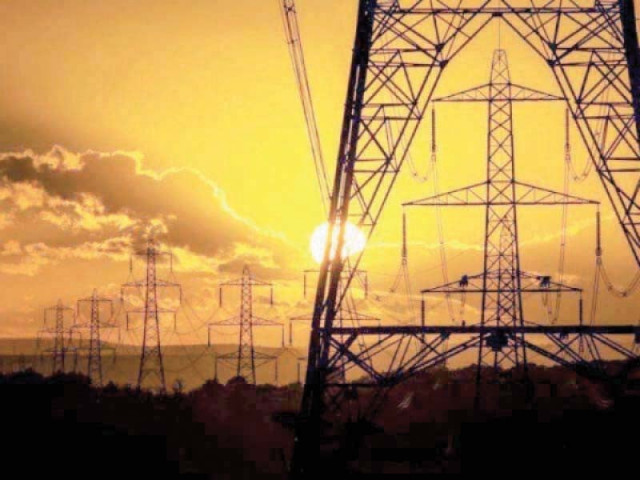ECC okays hike in power prices
Also approves draft of new automobile policy that discourages use of electric vehicles

The government on Thursday approved to further reduce subsidies that will immediately increase electricity prices by up to 95 paisa per unit, meeting another condition of the international financial institutions.
The Economic Coordination Committee of the Cabinet approved the plan to withdraw the subsidies. Headed by Minister of Economic Affairs Omar Ayub, the ECC also approved the draft of the new automobile policy that protects the status quo and discourages use of electric vehicles.
It also approved Rs5.8 billion payment to Nishat Chunian Power Plant under the agreement negotiated with the independent power producers (IPPs).
“The ECC, after deliberation, approved the summary presented by Ministry of Energy on Retargeting of Power Sector Subsidies - Phase –II, that included removal of one slab benefit (incremental block tariff) and incorporation of revised subsidy and inter-distribution companies tariff rationalisation/ cross subsidies,” according to a statement issued by the Ministry of Economic Affairs.
The reduction in subsidy would effectively increase electricity prices by 53 paisa per unit for residential consumers. The effective tariff for consumers utilising up to 100 units will increase by 8 paisa per unit, for consumers of 200 units, prices will go up by 18 paisa, for users of 300 units, they will increase by 48 paisa, according to the Ministry of Energy documents.
For consumers using 301-700 units, the effective tariff will increase by 95 paisa per unit, they revealed.
The new approved effective rate for up to 100 units consumers will be Rs9.5 per unit, for 200 units consumers, the rate will be Rs10.36 per unit, for 300 units consumers, it will be Rs12.62 per unit, for 400 units, the new rate will be Rs15.73 and for 500 units, it will be Rs17.19.
For users of 600 units, the rate would be Rs18.11 and consumers of up to 700 units will pay Rs18.75 per unit.
The government has further reduced the electricity subsidies as part of the understanding reached with the World Bank and the International Monetary Fund.
For the agricultural consumers, the ECC approved to divide agriculture tube-wells slab into two categories on the basis of plot size and motor capacity and gradually decrease subsidies to QESCO tube-wells, according to the decision.
The ECC was informed that for implementation of Phase-II, a two-part approach is being proposed keeping in view the different timelines involved for proper analysis and firming up of proposal.
Under the phase I, the government has restructured the electricity slabs from 300-700 units without changing the effective tariff.
The fresh increase in electricity prices comes due to significant increase in tariffs on account of annual adjustments and monthly fuel price adjustments. The effective per unit electricity rate has gone up to Rs31 per unit in November, including the impact of sales tax and various surcharges.
Auto industry policy
The ECC approved the Auto Industry Development and Export Policy (AIDEP) 2021-26, with the directions that export targets given in the policy may be reviewed every year and updated accordingly and proposed tariff structure to be presented separately to the ECC.
The aim of the new policy is to ensure affordability of small cars, better quality of vehicles and enhancing competition. The new policy targets to increase car production to 650,000, tractor output to 100,000 and heavy commercial vehicle output to 20,000. In addition, production of two and three wheelers is targeted at 7 million per annum.
However, the policy does not encourage production of the electric vehicles and it is focused more on hybrid cars.
The Ministry of Industries told the ECC that the last automobile policy attracted $1 billion investment in assembling of cars, and light and heavy commercial vehicles. Nine companies have already started manufacturing while four companies are expected to start their operations in the current fiscal year.
Other decisions
The ECC also approved to enhance borrowing limit for Khyber-Pakhtunkhwa government from the central bank from Rs27 billion to Rs31.3 billion due to the impact of wage bill of erstwhile FATA, according to the Ministry of Economic Affairs.
The ECC approved to place the fertiliser sector at par with the domestic and commercial and exporters. The system gas supplies will be ensured to these plants during the current Rabi season 2021-22 to guarantee immediate availability of urea fertiliser and saving of foreign exchange if urea is imported from abroad.
Published in The Express Tribune, December 17th, 2021.
Like Business on Facebook, follow @TribuneBiz on Twitter to stay informed and join in the conversation.



















COMMENTS
Comments are moderated and generally will be posted if they are on-topic and not abusive.
For more information, please see our Comments FAQ